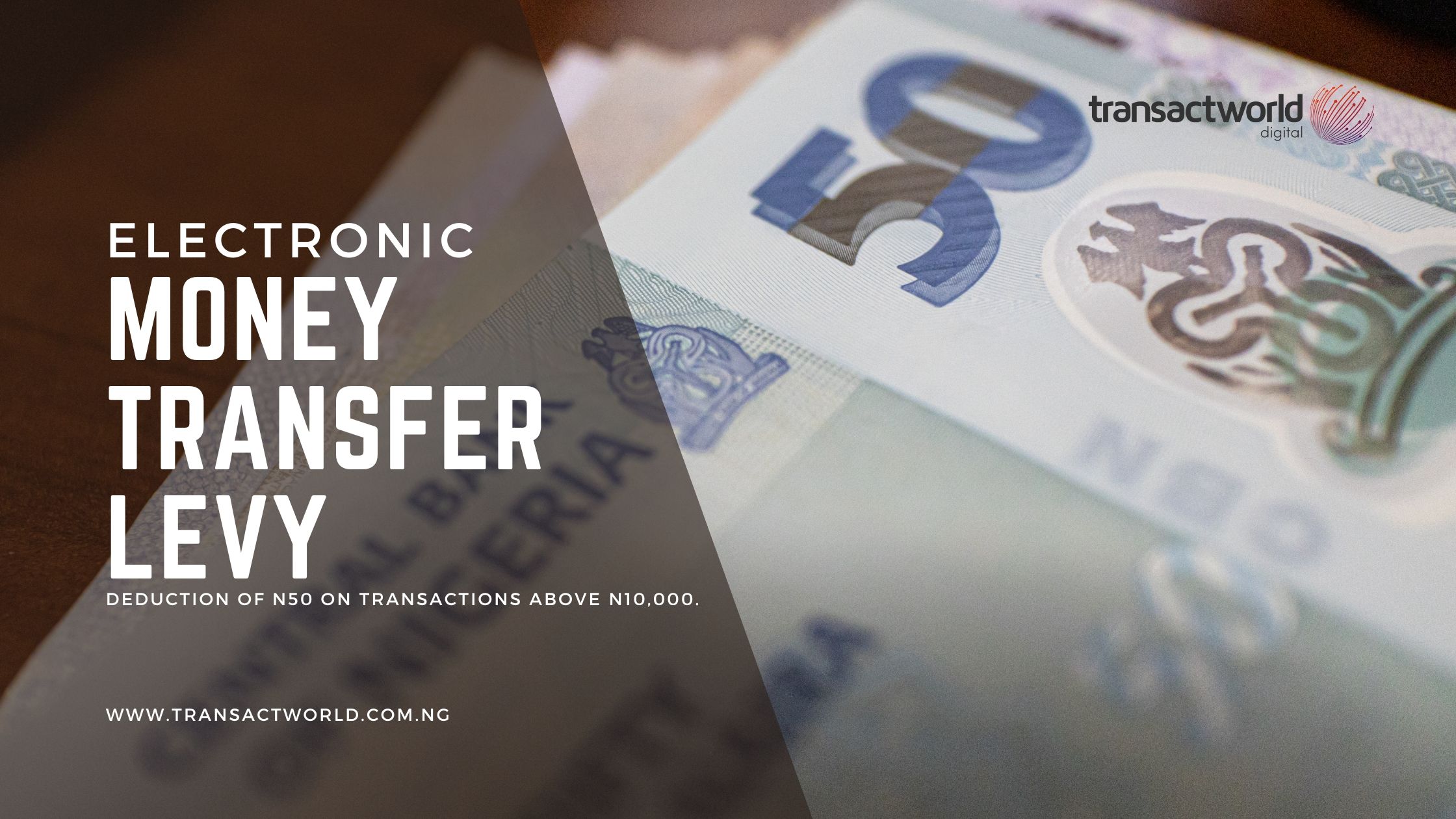Physical Address
304 North Cardinal St.
Dorchester Center, MA 02124
Physical Address
304 North Cardinal St.
Dorchester Center, MA 02124

In a digital age where technology has transformed the way we interact and conduct business, the introduction of the 50 Naira Electronic Money Transfer Levy has sparked widespread discussion in the media. This significant development will have far-reaching implications for individuals and businesses alike. As a merchant, it’s crucial to understand how this new regulation will affect your business and take steps to mitigate any potential negative consequences.
The Federal Inland Revenue Service (FIRS) has implemented a N50 levy on electronic transfers of N10,000 or more. Introduced in the Finance Act 2020, this levy is a one-time charge applied to electronic receipts or transfers of money deposited in any deposit bank or financial institution. It is applicable to both personal and business accounts.
The levy is imposed as a one-time fee on the recipient of the transfer. For example, if you receive N15,000 from a friend, you’ll be charged N50. The levy is collected by the receiving bank, which then remits it to the FIRS.
This new regulation impacts a wide range of individuals and businesses involved in electronic transactions. From personal transfers between friends and family to business payments and salaries, the levy applies to almost all electronic money transfers.
At Transactworld Digital, our primary focus is on providing payment solutions for merchants. The new levy has implications for our merchants in several ways:
These are the ways the Electronic Money Transfer Levy affects our merchants at the moment. If anything changes, we will communicate just like this. Our commitment is to you and your success.
The introduction of the 50 Naira Electronic Money Transfer Levy is a significant development that will have far-reaching implications for the Nigerian financial landscape. As a leading provider of payment solutions, Transactworld Digital is committed to helping our merchants navigate this new regulatory environment.
For more information, please visit our website or contact our support team.